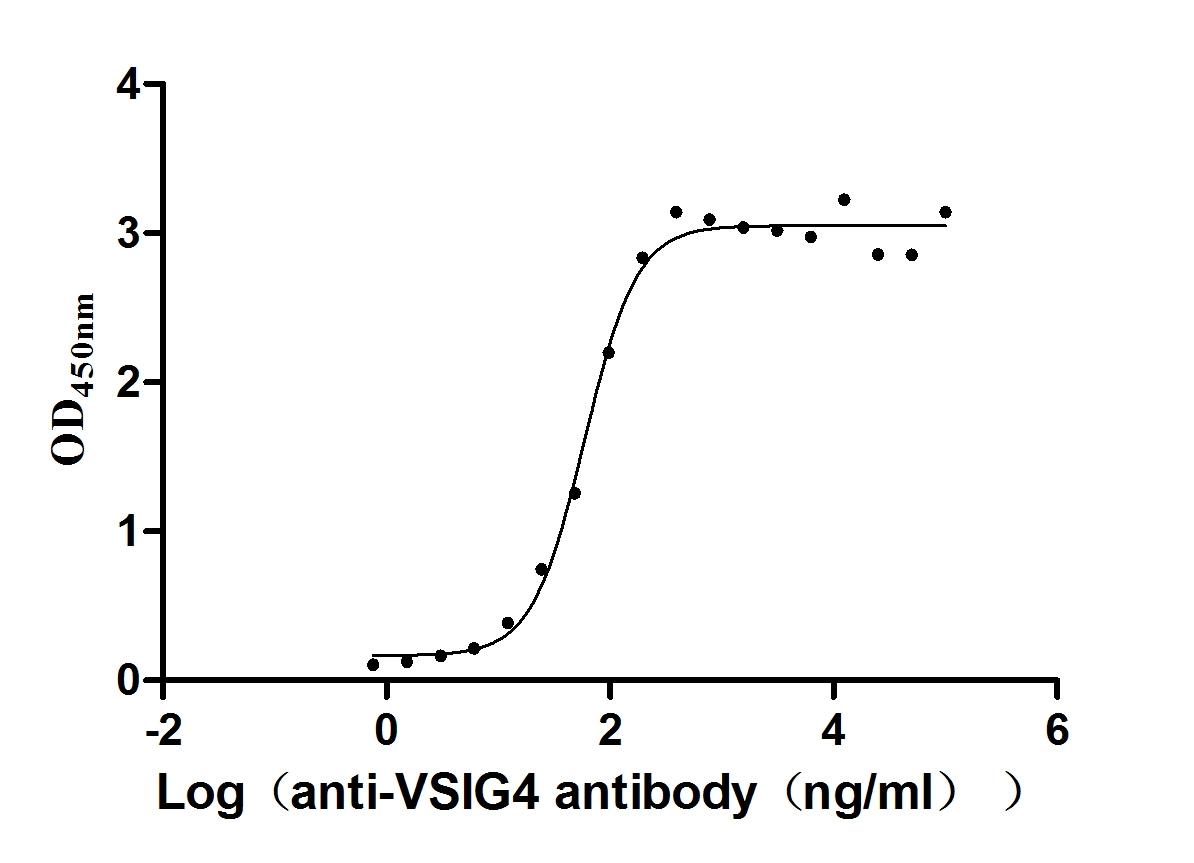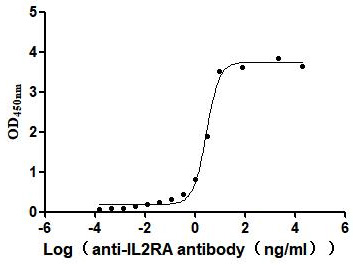Recombinant Mouse Protein phosphatase 1 regulatory subunit 3C (Ppp1r3c)
-
中文名稱:小鼠Ppp1r3c重組蛋白
-
貨號:CSB-YP763096MO
-
規(guī)格:
-
來源:Yeast
-
其他:
-
中文名稱:小鼠Ppp1r3c重組蛋白
-
貨號:CSB-EP763096MO
-
規(guī)格:
-
來源:E.coli
-
其他:
-
中文名稱:小鼠Ppp1r3c重組蛋白
-
貨號:CSB-EP763096MO-B
-
規(guī)格:
-
來源:E.coli
-
共軛:Avi-tag Biotinylated
E. coli biotin ligase (BirA) is highly specific in covalently attaching biotin to the 15 amino acid AviTag peptide. This recombinant protein was biotinylated in vivo by AviTag-BirA technology, which method is BriA catalyzes amide linkage between the biotin and the specific lysine of the AviTag.
-
其他:
-
中文名稱:小鼠Ppp1r3c重組蛋白
-
貨號:CSB-BP763096MO
-
規(guī)格:
-
來源:Baculovirus
-
其他:
-
中文名稱:小鼠Ppp1r3c重組蛋白
-
貨號:CSB-MP763096MO
-
規(guī)格:
-
來源:Mammalian cell
-
其他:
產(chǎn)品詳情
-
純度:>85% (SDS-PAGE)
-
基因名:
-
Uniprot No.:
-
別名:Ppp1r3c; Ppp1r5Protein phosphatase 1 regulatory subunit 3C; Protein phosphatase 1 regulatory subunit 5; PP1 subunit R5; Protein targeting to glycogen; PTG
-
種屬:Mus musculus (Mouse)
-
蛋白長度:full length protein
-
表達(dá)區(qū)域:1-317
-
氨基酸序列MSCTRMIHVL DPRPLTSSVM PVDMAMRICL AHSPPLKSFL GPYNGFQRRN FVNKLKPLKP CLSVKQEAKS QSEWKSPHNQ AKKRVVFADS KGLSLTAIHV FSDLPEEPAW DLQFDLLDLN DISSSLKLHE EKNLVFDFPQ PSTDYLSFRD RFQKNFVCLE NCSLQDRTVT GTVKVKNVSF EKKVQVRITF DTWKTYTDVD CVYMKNVYSS SDSDTFSFAI DLPRVIPTEE KIEFCISYHA NGRIFWDNNE GQNYRIVHVQ WKPDGVQTQV APKDCAFQQG PPKTEIEPTV FGSPRLASGL FPEWQSWGRV ENLTSYR
-
蛋白標(biāo)簽:Tag?type?will?be?determined?during?the?manufacturing?process.
The tag type will be determined during production process. If you have specified tag type, please tell us and we will develop the specified tag preferentially. -
產(chǎn)品提供形式:Lyophilized powder
Note: We will preferentially ship the format that we have in stock, however, if you have any special requirement for the format, please remark your requirement when placing the order, we will prepare according to your demand. -
復(fù)溶:We recommend that this vial be briefly centrifuged prior to opening to bring the contents to the bottom. Please reconstitute protein in deionized sterile water to a concentration of 0.1-1.0 mg/mL.We recommend to add 5-50% of glycerol (final concentration) and aliquot for long-term storage at -20℃/-80℃. Our default final concentration of glycerol is 50%. Customers could use it as reference.
-
儲存條件:Store at -20°C/-80°C upon receipt, aliquoting is necessary for mutiple use. Avoid repeated freeze-thaw cycles.
-
保質(zhì)期:The shelf life is related to many factors, storage state, buffer ingredients, storage temperature and the stability of the protein itself.
Generally, the shelf life of liquid form is 6 months at -20°C/-80°C. The shelf life of lyophilized form is 12 months at -20°C/-80°C. -
貨期:Delivery time may differ from different purchasing way or location, please kindly consult your local distributors for specific delivery time.Note: All of our proteins are default shipped with normal blue ice packs, if you request to ship with dry ice, please communicate with us in advance and extra fees will be charged.
-
注意事項(xiàng):Repeated freezing and thawing is not recommended. Store working aliquots at 4°C for up to one week.
-
Datasheet :Please contact us to get it.
靶點(diǎn)詳情
-
功能:Acts as a glycogen-targeting subunit for PP1 and regulates its activity. Activates glycogen synthase, reduces glycogen phosphorylase activity and limits glycogen breakdown. Dramatically increases basal and insulin-stimulated glycogen synthesis upon overexpression in a variety of cell types.
-
基因功能參考文獻(xiàn):
- metabolic crosstalk is due to decreased mTORC1 and SREBP activity in PTG knockout mice or knockdown cells, suggesting a positive feedback loop in which once accumulated, glycogen stimulates the mTORC1/SREBP1 pathway to shift energy storage to lipogenesis. PMID: 24722244
- removing PTG, a glycogen synthesis activator protein, nearly completely eliminates Lafora bodies and rescues the neurodegeneration, myoclonus,seizure susceptibility, and behavioral abnormality. PMID: 24419970
- Laforin-deficient mice lacking PTG have greatly decreased Lafora bodies and normal glycogen levels. PMID: 21552327
- These data suggest that PTG plays a critical role in glycogen synthesis and is necessary to maintain the appropriate metabolic balance for the partitioning of fuel substrates between glycogen and lipid. PMID: 12727934
- PTG overexpression in 3T3-L1 adipocytes discretely stimulates PP1 activity against glycogen synthase and phosphorylase, resulting in a marked and specific increase in glucose uptake and storage as glycogen. PMID: 12805359
- These data indicate that disruption of PTG expression resulted in the uncoupling of PP1 activity from glycogen metabolizing enzymes, the enhancement of glycogenolysis, and a dramatic decrease in cellular glycogen levels. PMID: 16354703
- mouse protein targeting to glycogen (PTG) promoter is regulated by the FoxA2 forkhead protein and by 3',5'-cyclic adenosine 5'-monophosphate in H4IIE hepatoma cells PMID: 16627590
顯示更多
收起更多
-
數(shù)據(jù)庫鏈接:
Most popular with customers
-
Recombinant Rat Intestinal-type alkaline phosphatase 1 (Alpi) (Active)
Express system: Mammalian cell
Species: Rattus norvegicus (Rat)
-
Recombinant Mouse Tyrosine-protein kinase Mer (Mertk), partial (Active)
Express system: Mammalian cell
Species: Mus musculus (Mouse)
-
Recombinant Human Microtubule-associated protein tau (MAPT) (Active)
Express system: Mammalian cell
Species: Homo sapiens (Human)
-
Recombinant Human V-set and immunoglobulin domain-containing protein 4 (VSIG4), partial (Active)
Express system: Mammalian cell
Species: Homo sapiens (Human)
-
Recombinant Human Cell adhesion molecule 1 (CADM1), partial (Active)
Express system: Mammalian cell
Species: Homo sapiens (Human)
-
Recombinant Human Interleukin-2 receptor subunit alpha (IL2RA), partial (Active)
Express system: Mammalian cell
Species: Homo sapiens (Human)
-
Recombinant Rat Gastric inhibitory polypeptide receptor (Gipr), partial (Active)
Express system: Mammalian cell
Species: Rattus norvegicus (Rat)
-
Recombinant Mouse Cytotoxic and regulatory T-cell molecule (Crtam), partial (Active)
Express system: Mammalian cell
Species: Mus musculus (Mouse)




-AC1.jpg)













